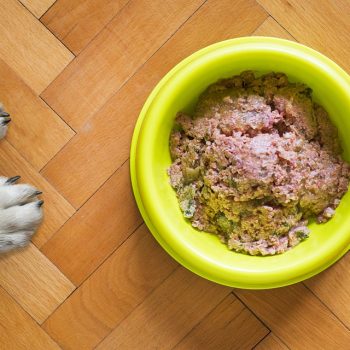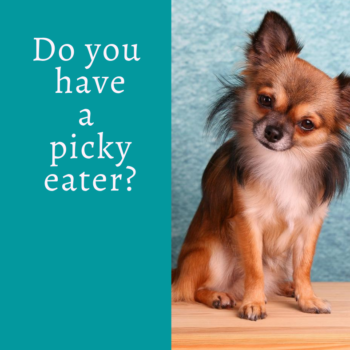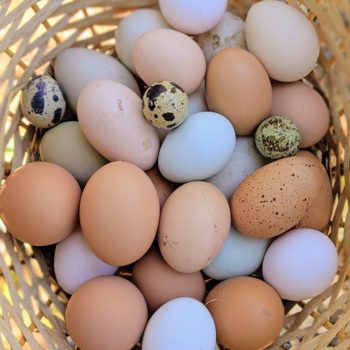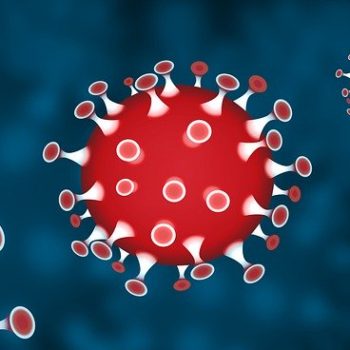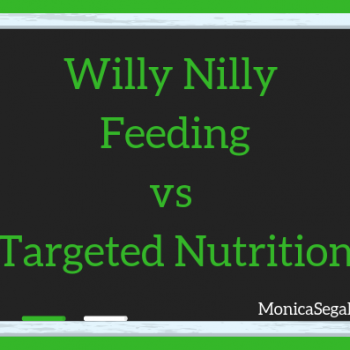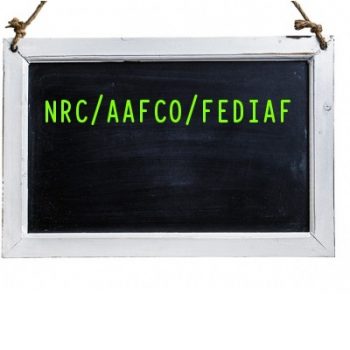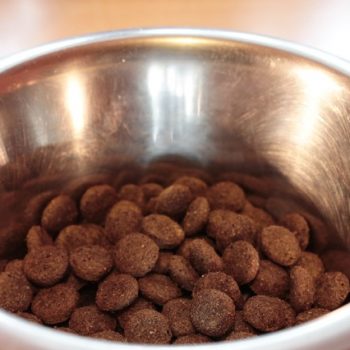Wednesday, December 8th, 2021
It’s probably no surprise that I feel fresh food diets formulated to NRC and customized to the dog are ideal, but just like many of my clients, I think about life’s “what ifs”
Responsible dog ownership includes having a plan to manage life when the unexpected happens. In the fresh food arena people are focused on the variety of foods, but what if that’s suddenly not possible? What if there’s a power outage for days, or you’re in the hospital, or recuperating and can’t stand for longer periods? What if your pet sitter cancels and your dog must be boarded somewhere they can’t make food for him/her? Even fun things like going on a road trip with your dog can translate to an inability to have her/his regular fresh meals available. What about staying with family out of town and not having the time or space for food prep? Read more DO YOU HAVE AN EMERGENCY FOOD PLAN?
Monday, June 21st, 2021
Exciting news in the dog world!
The genome of the Basenji, which sits at the base of the dog breed family tree, makes an excellent unbiased reference for future comparisons between dog breeds and evolutionary analysis of dogs.
“Before this paper, it was difficult to interpret differences between the dog reference genomes and non-domesticated dogs, such as dingoes, jackals, coyotes, wolves and foxes.”
Read more Researchers Sequence Genome of Basenji Dog
Saturday, February 6th, 2021
A healthy gut equates to a healthier dog. Healthy + slim = improved quality of life and longevity.
Three key points the study makes:
- Dogs fed fresh food don’t need to consume as many calories as when fed kibble
- Human grade food is more digestible than commercial dog food
- Dogs on freshfood diets have healthier gut biomes
Read more Human Grade Ingredients in Pet Foods
Wednesday, February 3rd, 2021
An important part of formulating proactive canine diets is consideration to the breed health disposition as well as the individual dog. The Labrador Retriever is a good example of what this might look like.
Labs make great family dogs and have a lot of energy for field work yet pack on the weight easily. They can have a genetic predisposition for this weight gain, and they love to eat so double trouble.
- Skeletal issues are common in the breed and can be a precursor to arthritis at an earlier age than some other breeds. Extra body weight burdening the joints add to the problem.
- Allergies (not necessarily, but not uncommon in this breed)
- Cancers
Read more Feeding the Labrador Retriever
Tuesday, August 11th, 2020
Although it’s not only small dogs that can be fussy eaters, it is more common in the toy breeds and there may be a few reasons.
Fresh food diets can work really well if we keep a few things in mind:
- Rule out any medical issues with a vet visit, bloodwork etc.
- Small dogs often get a lot of attention by receiving many treats. Little tummies fill up quickly and smart dogs will hold out for more treats rather than eating their own food. Use part of their food intake as treats by putting some in puzzle games.
Read more Help Your Picky Dog Eat Well
Monday, August 3rd, 2020
Eggs hold the number one spot on the biological value (how readily a digested protein can be used in protein synthesis in the cells of the organism) scale. Along with other nutrients, they’re a great source of choline which plays roles in fat transport and metabolism, muscle movement, memory, neurotransmission, DNA synthesis and cell structure and messaging.
With all three varieties of eggs more available these days the nutritional differences between them, including their costs may impact your decision about which to choose for your own dog.
Comparing one type of egg to another is best done by weight because duck eggs are larger than chicken eggs, and quail eggs are very much smaller. Read more Chicken, Quail and Duck Eggs For Home-Made Dog Food Recipes
Wednesday, March 4th, 2020
Daily updates about this virus includes a case of a dog in Hong Kong testing positive for it. We want to address this because we have clients worldwide.
Before more panic ensues, here’s a reliable blog where the renowned Dr. Weese explains where we stand. https://www.wormsandgermsblog.com/2020/02/articles/animals/dogs/covid-19-in-a-dog/?fbclid=IwAR06md2rE6omsULvb3oEnALROIFMNsxA4QhKfWPySYkvwA6cL9M4Ax7xb60
Arguably the more realistic consideration about an outbreak (pandemic or otherwise) is we’re being advised to consider having 2-3 weeks worth of food and other daily needs in reserve. How would this affect our dogs? Read more COVID-19 (novel coronavirus) and Dogs
Monday, December 9th, 2019
Our preference when formulating diets is to get as many of the required nutrients from foods but the reality is there are many situations where supplements may be needed.
▶️Some dogs simply can’t tolerate the actual foods that provide the needed vitamins or minerals. Salmon and sardines provide vitamin D and EPA/DHA but many dogs can’t tolerate fish, simply don’t like it or won’t eat it consistently.
▶️ Some dogs can’t eat enough food to get the needed nutrients or they’ll gain weight, others simply won’t eat enough food. Even with a personalized, nutrient dense diet, picky dogs and easy keepers are usually candidates for supplements. Read more Supplements Or Whole Foods?
Thursday, March 28th, 2019
Sweet potatoes are super quick to prepare when you use this method. Less time in the kitchen means more time to play with your dog!
Wednesday, December 5th, 2018
If you are new to feeding your dog fresh foods you’ve probably tried to research by going online and joining a FB group (well, it’s rarely one 😊) for advice. You were most likely told to follow some guidelines based on a % – such as 80/10/5/5 or 80/10/10 or 50% raw meaty bones plus some other % for organs, muscle meats and maybe some veggies. There are many thoughts on what the ratios should be and it’s very confusing.
It’s confusing because the suggestions are based on opinion without much information for substantiation. Most feeding methods are based on percentages that try to approximate the composition of a prey animal. People figure out how much bone is in the prey animal and how much that contributes to the bone % of their chosen feeding method. Then they have to figure out how much of the organs of an animal contribute to the overall organ %- but often get confused on classifying secreting glands, muscle meat and organs %. And then what about veggies, seeds and oil balancing???
Read more Feeding by Percentage vs Targeted Nutrition
Friday, June 22nd, 2018
The National Research Council (NRC) guidelines were written by an independent group of scientists and are based on fresh food ingredients, not processed pet feed. Whole prey meets the NRC numbers, so for the ‘new’ thinking as regards prey model diets, if you believe they’re best, you should also believe that NRC is as good.
Dogs haven’t changed and their requirements are the same – so just because belief systems on how to feed have changed it doesn’t mean that requirements have changed. If not for science we wouldn’t know how to formulate therapeutic diets. If we don’t know that a 25lb dog needs X amount of phosphorus, and then that dog develops kidney disease and needs a low phosphorus diet to address it- how would we help that dog if the NRC numbers are meaningless? If the NRC is wrong, or outdated – why do the diets work so well even for correcting problems? Read more Nutrient Requirements of Raw Fed Dogs
Tuesday, June 19th, 2018
While any disease that strikes our dogs is one too many, there are situations that include more than one disease at once. In cases of cancer combined with just about any other disease, owners are likely to focus on the cancer first. From a nutritional point of view, this reaction can be dangerous.
Pancreatitis (inflammation of the pancreas), and most cases of GI diseases demand a low-fat diet. Yet, the most common diets for cancer are keto and those high in omega 3 fatty acids. In these examples of disease, feeding those popular diets stand to harm the dog far sooner than the cancer will. Read more Triage Your Dog
Tuesday, June 19th, 2018
In the case of dogs eating garden plants and bulbs, the risks range from vomiting and diarrhea to seizures, and death. Here are the plants and bulbs to avoid:
Crocuses
Spring crocuses are attractive to many dogs. Ingestion can cause vomiting and diarrhea leading to dehydration.
Daffodils
All parts (flower, plant, and especially the bulb) contain poisonous alkaloids with potential to cause excessive salivation, vomiting, diarrhea, convulsions, and heart problems. Read more Spring Plants That Are Dangerous, Toxic to Dogs
Friday, December 26th, 2014
I’m talking to you. Yes, you! The one with the Cavalier King Charles Spaniel that’s “just big boned”, the owner of that Mastiff who is “supposed to be this large!”, the Beagle devotee who loves the “plushy rolls that are part of being a hound”, and every other dog owner out there who’s looking at their dog through the fun-house mirror that makes their dog look thin. This is for people who think their vet just likes skinny dogs too.
Read more Your Fat Dog – Yes, Yours!
Sunday, July 13th, 2014
My experience suggests that dogs do this for two main reasons: they’re using it to purge their bodies of something (food that disagrees with them, or something they’ve ingested that may, or may not be food), or they’re searching for something to do, and perhaps enjoy eating. In other words, the dog may find this behavior entertaining, relaxing, or even nutritionally beneficial. You can tell which of the two a dog is experiencing by watching the way they go about eating it.
Frenzied behavior that leads them to eat whichever grass happens to be closest to the door you’ve let them through (often because they seem to have an urgent need to get outside), and vomiting afterward can be due to a health problem, or is a sign of the diet not agreeing with the dog. If it happens often, and the vet has given an all-clear, it may be time to take a 3 pronged approach: Read more Why Dogs Eat Grass
Tuesday, February 19th, 2013
Despite the start of this, it leads to diet. Then again, just about everything leads to diet in my world.
I’m not sure what to call it. Maybe it’s radar of some kind, maybe it’s a connection from one soul to another, but most of us know when our dogs are “off”. Sometimes we can’t even put a finger on it and we feel silly trying to describe what “off” might mean. For example, I had a friend who swore she knew when her Golden was “off” by the way his whiskers looked. Crazy? Maybe, but she was never wrong. Not even once.
So, your dog just doesn’t seem to be right and you’re feeling torn. Do you go to the vet and try to explain what you can’t even find words for? Especially when you know that tests will cost money and the only thing that might be happening is your imagination running wild? Read more Dog Owners Know Their Dogs Best
Wednesday, April 18th, 2012
You’re feeding an over-the-counter (OTC) venison diet…or are you? It turns out that some commercial diets labelled as containing venison as the only meat source, can include other things that may trigger an allergic response. “Three of the four over the counter (OTC) venison canine dry foods with no soy products named in the ingredient list were ELISA positive for soy; additionally, one OTC diet tested positive for beef protein with no beef products listed as an ingredient list. One OTC venison diet was not found to be positive for soy, poultry or beef proteins. However, none of the four OTC venison diets could be considered suitable for a diagnostic elimination trial as they all contained common pet food proteins, some of which were readily identifiable on the label and some that were only detected by ELISA.” Read more So You’re Feeding a Venison Diet – Really?



